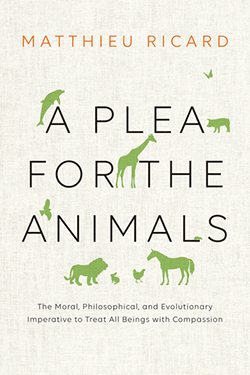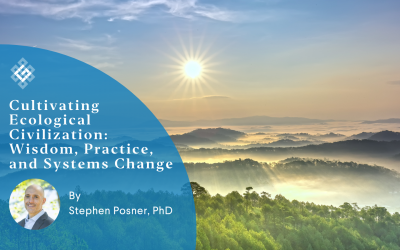In his most recent book, A Plea for the Animals: The Moral, Philosophical, and Evolutionary Imperative to Treat All Beings with Compassion, Buddhist monk Matthieu Ricard makes a case for ending our exploitation of non-human animals. If we stopped eating animal products, he says, we could start to alleviate global hunger, significantly reduce our carbon emissions, and improve human health. And, of course, we would also eliminate a great deal of unnecessary suffering to billions of sentient beings every year.
We spoke with Ricard recently about A Plea for the Animals.
Once you’re aware of the amount of suffering caused by the meat industry, it’s difficult to justify eating meat. Why do people do it?
There was an interesting survey about this question done in Australia and the answers people offered were quite revealing. Eighty percent of people said they ate meat because they like the taste of it. You could check multiple boxes to answer the question, so forty-five percent of people indicated that it is because meat eating is a tradition in their family. And then the other answer that people gave was that they don’t know what else to cook. Interestingly, human health wasn’t even a top concern.
That you eat meat because you like the taste is a pretty weak ethical argument. Consider these staggering numbers: every year, 60 billion land animals and one trillion sea animals are slaughtered for food. This means that 120 million animals are killed per hour for our appetites. This is a lot of killing.
 People seem to be increasingly aware of these types of facts and figures about the meat industry, but many still choose to eat meat. If it isn’t logical argument that will convince people to change their behavior, what will?
People seem to be increasingly aware of these types of facts and figures about the meat industry, but many still choose to eat meat. If it isn’t logical argument that will convince people to change their behavior, what will?
I think the reason people don’t appreciate the full measure of the meat industry is because the damage of it is hidden from our eyes. I’ve heard it said that if slaughterhouse walls were made of glass, we would change our habits because then we would be confronted with the magnitude of suffering going on. But the whole system is made so that it’s totally invisible because we don’t really want to know.
But the industry also keeps it hidden from consumers on purpose. If you want to film inside a slaughterhouse, you’ll find that it’s guarded like a military camp. They do this because if people really knew what is going on inside them then they would stop supporting their business.
So you believe that it’s mostly an issue of awareness and that, between our taste for meat and the meat industry’s profits, we’re participating in a mutual conspiracy to hide the truth.
Yes. In France, for example, there is an organization that is very active shooting videos in slaughterhouses with hidden cameras. The videos show such horrendous images that they were able to shut down eight slaughterhouses.
The public opinion has shifted so that eighty percent of French people now say, “Slaughterhouses are unacceptable.”
Does this give you hope that these kinds of changes can take place in other parts of the world?
We have made immense progress in civilization. 200 years ago, we were torturing people in the public arena in Europe. On Sunday afternoons people would go to see someone hanged or put on a wheel and beaten to death. It was commonly done. They used to execute people in public places. All of this is illegal now—slavery, torture, and things like this.
We have reached the stage of civilization where the value of human life is no longer negotiable. So what is the next step of having coherent ethics? In some way, it’s extending rights to the eight million species on this earth.
Another hopeful sign is that, when I went to Princeton last year, the first 50 meters of the self-service food canteen were entirely vegan options. I was told that twenty percent of students at Princeton are vegan. This is similar to other universities. So three or four percent of the global population in the U.S. are vegan and it’s twenty percent among university students. And even in the U.S., where hunting is a spiritual, sacred, and fantastic thing, the numbers of hunters have declined by something like thirty percent in ten years. There’s something changing in the new generation.



